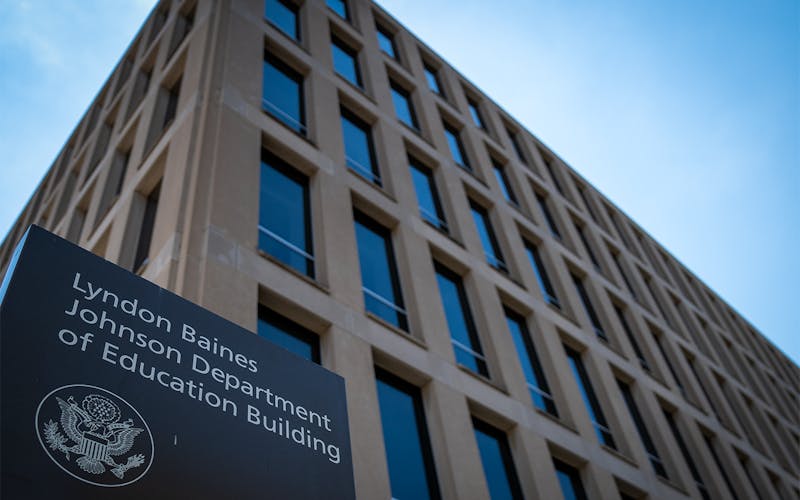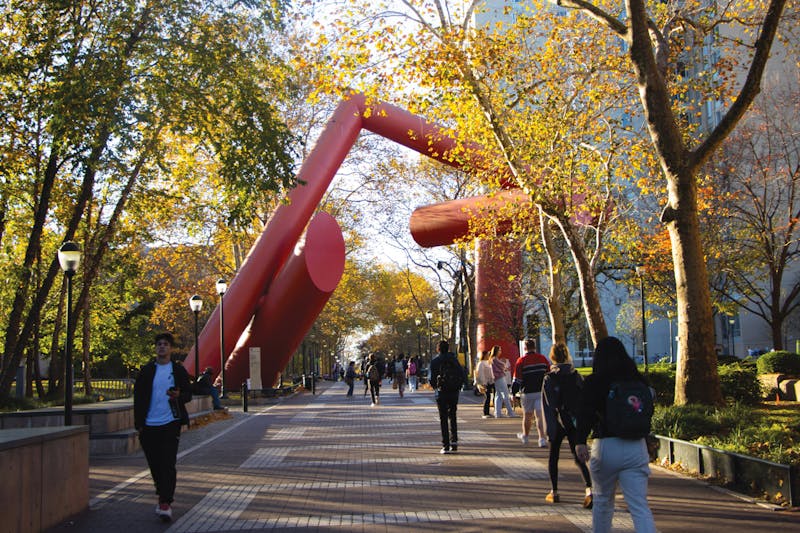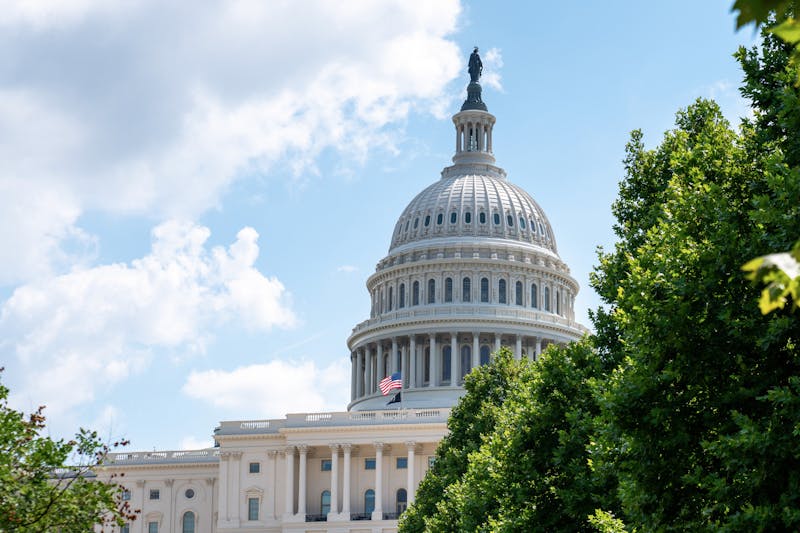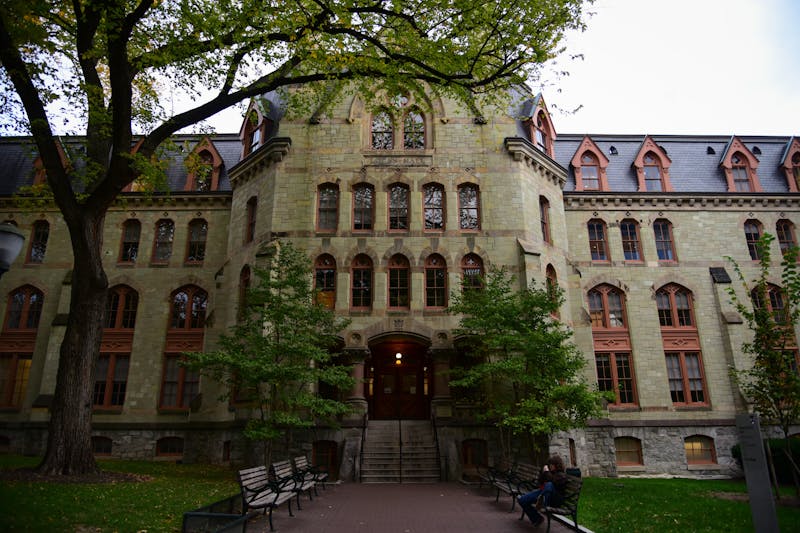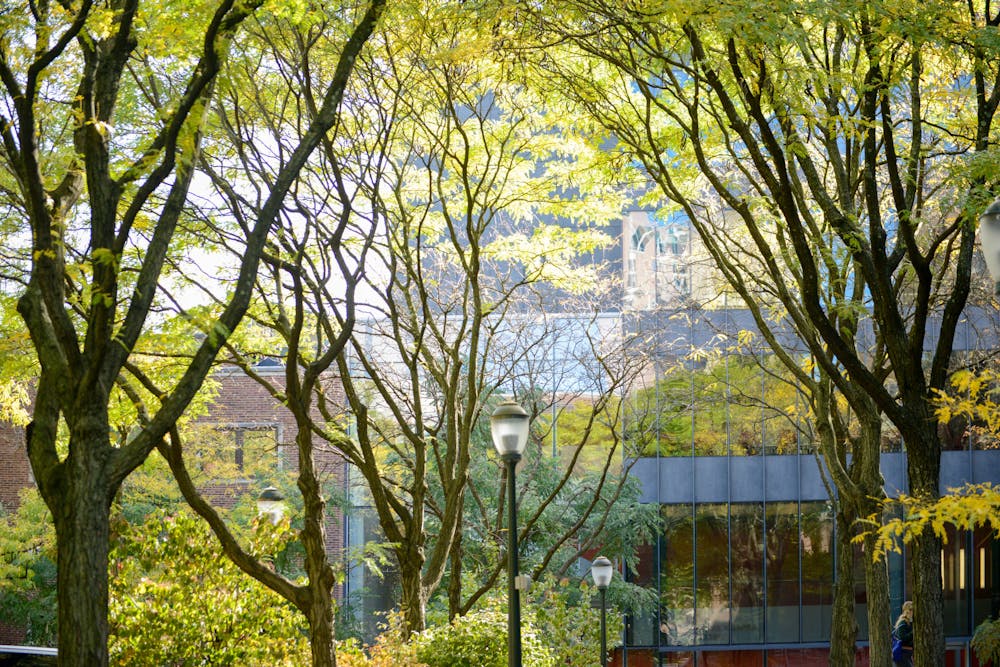
The CSA released the annual disciplinary report for fiscal year 2024 at Penn.
Credit: Riya MitraThe University had nearly 140 more student disciplinary incidents in the 2023-24 academic year compared to the previous year, according to its annual disciplinary report.
The report — released by the Center for Community Standards and Accountability and the Office of the Associate Vice President for Equity and Title IX Officer in July — listed 742 total incidents, an increase from 608 in 2022-2023 and 678 the year before. The incident count for 2023-2024 includes 332 academic integrity cases and 250 student conduct cases.
The number of "failure to comply" cases rose significantly, jumping to 68 instances from 27 the previous year. The University also reported 22 suspension sanctions for student conduct — more than five times the number of suspensions the preceding academic year.
Regarding the increase, the report noted that sanctions "are reported by policy violation, not by respondent. During spring 2024, a total of 22 policy violations resulted in CSA recommending suspensions for six respondents.”
In May, the University placed six students affiliated with the Gaza Solidarity Encampment on mandatory leaves of absence pending the results of CSA’s disciplinary investigations. A July 2 post from the Freedom School for Palestine stated that four students involved with on-campus pro-Palestinian activism were suspended.
In response to a request for comment on whether the six recommended suspensions are the same students placed on mandatory leaves of absence, Center for Community Standards and Accountability Executive Director Julie Nettleton wrote that the CSA does not comment on individual cases.
She noted that CSA is not involved in placing students on mandatory leaves of absence and that the leave of absence status "has no overlap or implication in CSA sanctioning."
According to the report, increased case investigations related to academic integrity surrounded plagiarism, unauthorized collaboration or use of another person’s work, facilitating academic dishonesty, and unfair advantage over fellow students. This follows a sevenfold increase in academic integrity violations for attaining an “unfair advantage over fellow students” in the 2022-23 academic year, partly due to the increased unauthorized use of ChatGPT.
“Hazing” violations dropped to five in 2023-24, compared to 14, 16, and 14 in the previous three years, respectively. “Other conduct violations” almost doubled from the previous academic year, while the number of academic support violations dropped to 13 — a 58% decrease from the 2022-23 academic year.
The number of "decision-making tree" sanctions for academic integrity rose to 86 from 27 in the previous academic year.
The decision-making tree is "an educational requirement that walks students through steps to make different choices moving forward," according to Nettleton.
"Sometimes to make a different choice, students need to be proactively addressing the underlying issues,” she wrote. “This requirement helps students identify these opportunities, so they are positioned differently next time a similar decision is in front of them.”
The report listed eight instances of "withheld/delayed" degrees compared to zero in the previous academic year.
The majority of disciplinary cases were resolved through a signed agreement, with 39 listed as unresolved. 195 cases were resolved through restorative practices.
“Restorative Practices is an opportunity to address harm that is different from a traditional disciplinary system," Nettleton wrote. "Essentially, it’s a process that focuses on identifying harms and involving those impacted in mapping out a path forward.”
Nettleton said it is important for the University community to have information such as that in the report on a "regular basis," noting that CSA has been publishing annual disciplinary reports since 2015.
She referenced a new dashboard on the CSA website that updates with disciplinary data by semester, in response to the University's recent antisemitism task force and task force to counter hate on campus.
"This new effort aims to provide more timely updates to the community," she wrote.
When asked whether CSA is working on decreasing the number of incidents, Nettleton wrote that CSA works with the University's schools and the University Honors Council “to talk about academic integrity concerns through preventative work and programming."
"It is important to note, though, that it is on the members of the Penn community to decrease incidents and to uphold the Codes of Academic Integrity and Student Conduct that all students are expected to know, understand, and follow," she wrote.
The Daily Pennsylvanian is an independent, student-run newspaper. Please consider making a donation to support the coverage that shapes the University. Your generosity ensures a future of strong journalism at Penn.
Donate




